Last updated: September 24, 2021
Article
National Park Getaway: Potomac Heritage National Scenic Trail
By Anne O’Neill, Acting Superintendent, Potomac Heritage National Scenic Trail
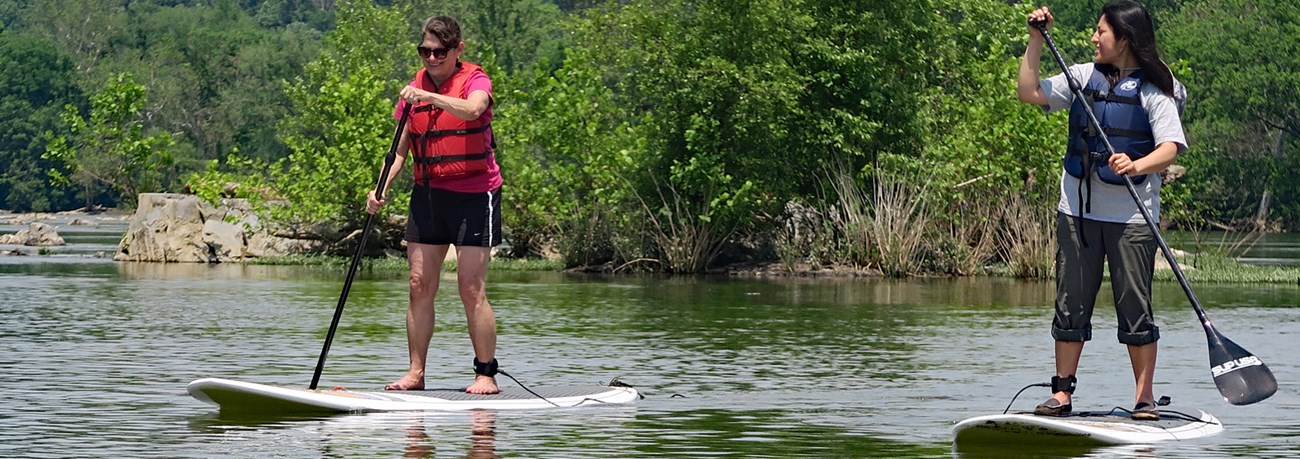
Courtesy of Northern Virginia Regional Commission
Find Your Trail, Find Your Park, Restore Your Health: Partners supporting conservation, outdoor recreation, and public health
“to promote the preservation of, public access to, travel within, and enjoyment and appreciation of the open-air, outdoor areas and historic resources of the Nation…(in urban and rural areas) “
National Trails System Act of 1968
Established in 1983, the Potomac Heritage National Scenic Trail (Potomac Heritage Trail) is one of eleven national scenic trails (NSTs) and one of three NSTs that are official units of the National Park Service (NPS). The Potomac Heritage Trail is comprised of a developing network of locally managed, land and water trails between the mouth of the Potomac River and the Allegheny Highlands. The trail passes through portions of five regions with distinct physical features and landscapes in Pennsylvania, Maryland, Virginia, and Washington, DC. Residents and visitors can explore a variety of historic and natural landscapes within the trail corridor.
The trail’s corridor network is a true partnership and collaboratively managed with the involvement of more than sixty partners and stakeholders, supporting connected conservation and outdoor recreation, and preserving scenic viewsheds. Currently 822 miles exist, which pass through twenty other National Park Service areas, including 184.5 miles of the Chesapeake & Ohio Canal National Historical Park’s towpath and 18 miles of the George Washington Memorial Parkway’s Mount Vernon Trail, and sections of the Washington-Rochambeau Revolutionary Route National Historical Trail, and the Captain John Smith Chesapeake National Historic Trail.

Courtesy of the Southern Maryland Heritage Area
Many people are surprised to learn that much of the trail corridor falls not on just on NPS land, but on land that is owned and managed by local, regional, state, and federal agencies, such as US Fish and Wildlife Service and Bureau of Land Management, as well as private organizations. For example, the Laurel Highlands Hiking Trail, a section of the Great Allegheny Passage Trail, portions of the Civil War Defenses of Washington Trail, the Dahlgren Railroad Heritage Trail, the Southern Maryland Bicycling Route, the Eastern Continental Divide Trail, and the Northern Neck Bicycling Route, as well as sections of trail in Northern Virginia and Prince George’s County are a part of the Potomac Heritage Trail.
Although there are more than 100 miles of land and water trail gaps, as the population along the trail corridor increases and land use changes, the trail designation provides an institutional framework for the continued conservation of important cultural sites, stories, and development of outstanding outdoor recreational experiences. The trail also provides the opportunity to promote different kinds of non-motorized experiences including walking, hiking, birding, on-road bicycling, mountain biking, fishing, camping, horseback riding, paddling, and cross-country skiing.
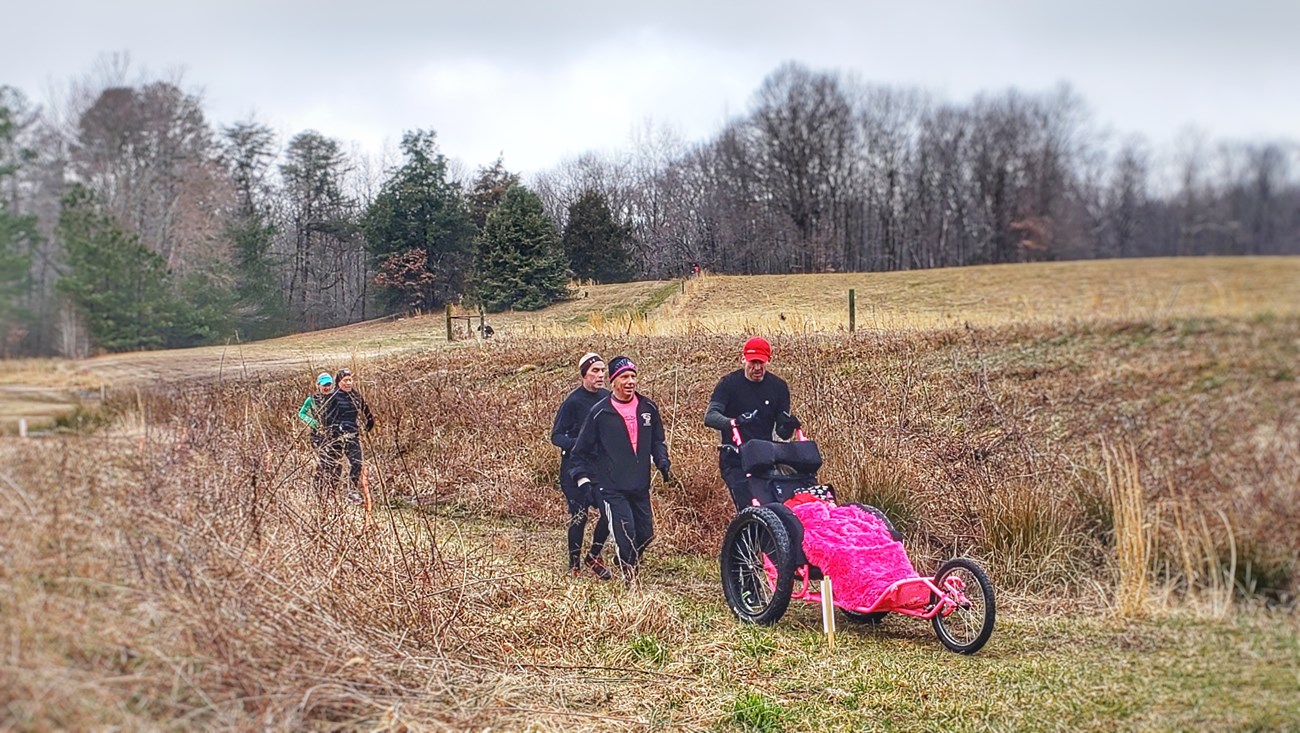
Courtesy of the Friends of the Dahlgren Railroad Heritage Trail / Jim Lynch
In addition to resource conservation, outdoor recreation opportunities are increasingly recognized as an important contributor to local, regional, and state economies and an important component of healthy communities. Some health benefits from spending time on the trail might include: reducing high blood pressure, maintaining a healthy body weight, increasing Vitamin D (boost your disease-fighting powers), lowering stress, slowing aging and increasing your lifespan, and improving your mood and mental health.
Explore the Potomac Heritage National Scenic Trail and its layered and complex history of the area from the indigenous communities living across the Potomac River's watershed, to European colonization, enslavement of many Africans and Americans, the Civil War, Reconstruction Era, Jim Crow Era, the Civil Rights movement, to celebrating descendent communities and offering welcoming experiences for all residents and visitors. Follow the Potomac Heritage Trail’s website and social media to discover what partners and stakeholders are doing to close trail gaps. Always check the trail's website for any closures or delays.
Choose Your Adventure!
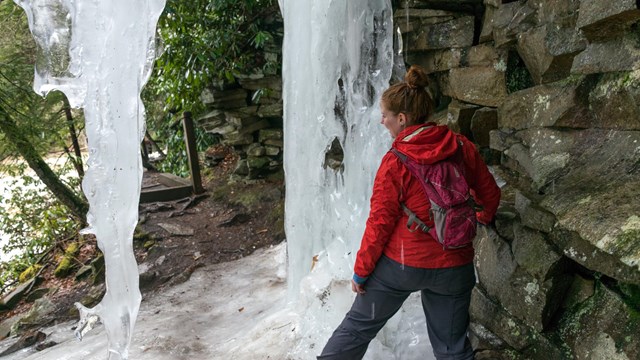
Whether you are out for a casual stroll or heading out for a multi-day hiking adventure, find some suggestions to get started.
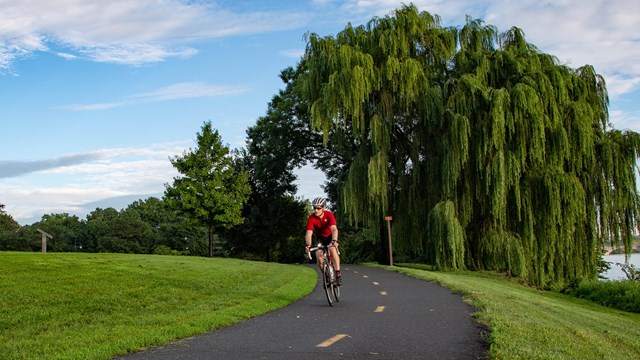
Bicyclists of all skill levels and bike types can enjoy miles of scenic trails throughout the trail's network.
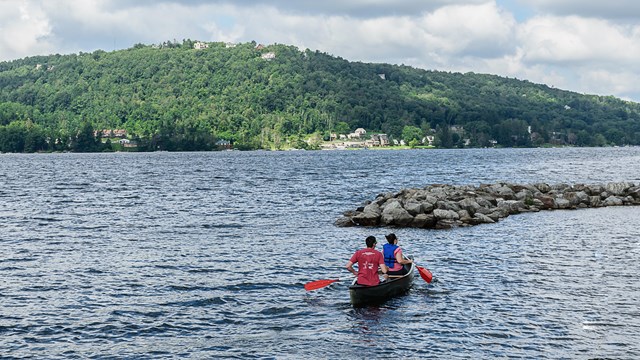
Explore the trail network on the water! Find suggestions to paddle the Potomac River and connecting waterways.
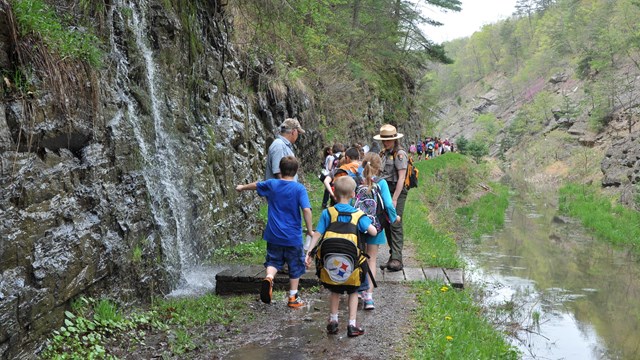
Check out fun for the whole family to explore nature, learn history, and experience many ways to play outdoors!
